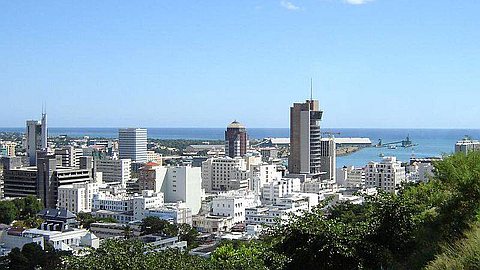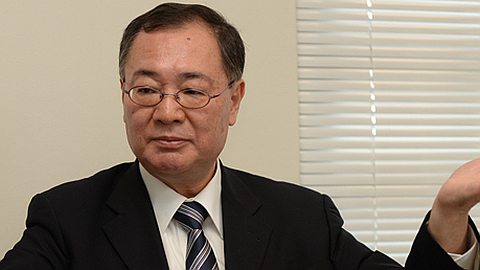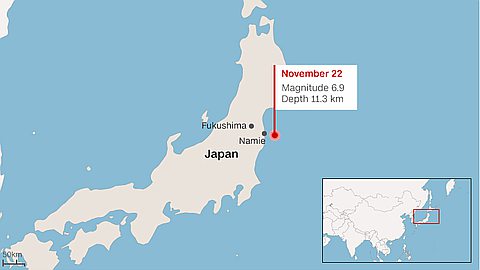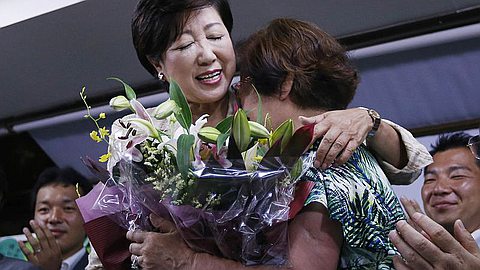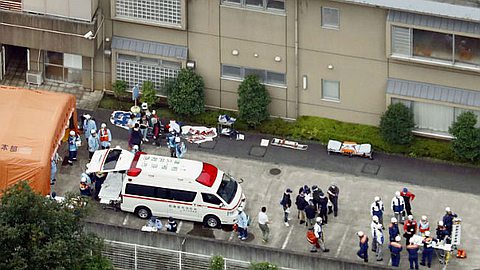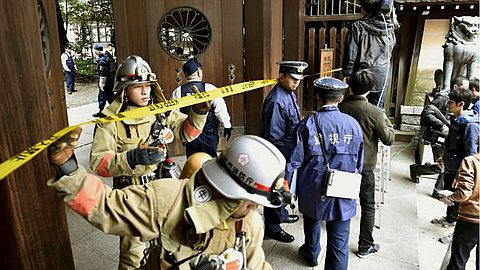Japan's Prime Minister Shinzo Abe Addresses Federal Parliament, Signs Free Trade Deal with Australia
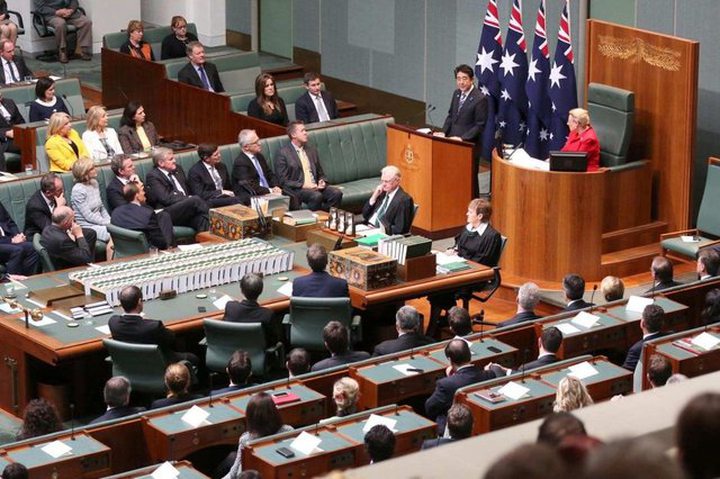
Mr Abe addressed a special joint sitting of federal parliament today on the first full day of his visit to Australia.
Speaking in English, he reiterated his nation's vow of peace made after World War II, sending his condolences to Australians killed and traumatised in that conflict.
Mr Abe said he had "absolutely no words to say" when despairing about the numerous "young Australians with bright futures" who lost their lives fighting Japanese forces.
"May I most humbly speak for Japan on behalf of the Japanese people here in sending my most sincere condolences towards the many souls who lost their lives," he told the parliament.
"This [peace] vow that Japan made after the war is still fully alive today. It will never change going forward," he pledged.
He said that deepened economic and defence ties had led to a new era in the relationship between the two nations.
"We will now join up in a scrum just like in rugby," he said, drawing laughter from MPs.
"Let us walk forward together - Australia and Japan with no limit – yes, we can do it."
The Japanese leader called for the vast seas and skies linking the Pacific and Indian oceans to be "open and free".
"In everything we say and do we must follow the law and never fall back into force and coercion," he said.
"When there are disputes, we must always use peaceful means to find solutions."
Mr Abe is signing economic and security treaties with his counterpart Prime Minister Tony Abbott during his three-day visit to Australia.
Speech in English for 'friendship and regard': officials
Senior Japanese officials told the ABC that his decision to speak in English was a statement of "friendship and regard".
It is only the third major speech the Japanese leader has delivered in English as prime minister.
He urged Australian parliamentarians to tell young people to travel to Japan, and promised to do the same for Australia.
He finished his speech by singling out Olympic swimming legend Dawn Fraser, who was in the public gallery to watch the speech.
Mr Abe said he was "dazzled" by Fraser's power in the 1964 Summer Olympics in Tokyo, and thanked her for attending his speech.
"Ms Fraser," he said, "to me, you are Australia."
"I hope very much that you bring forth a new dawn to Japan and new dawn to the future of Australia-Japan relations," he said, urging her to attend the 2020 Olympics in Tokyo.
Speaking a short time later, Ms Fraser said Mr Abbott invited her to attend Mr Abe's speech.
She said "it was a great honour" to have been personally praised by the Japanese prime minister.
"It was very exciting," she told reporters.
"He's a lovely prime minister with a lovely sense of humour."
Abbott says stronger ties with Japan not aimed at China
In his address, Prime Minister Tony Abbott sought to reassure Beijing that Australia's stronger security ties with Japan were not aimed at China.
"Ours is not a partnership against anyone," Mr Abbott said.
Mr Abbott also began his address by directly addressing the fact that the two countries fought each other during World War II.
He acknowledged that at times Australians had not felt "kindly toward Japan", but said the nation was now "grateful" for Japanese investment.
"Since 1957, Australian coal, iron ore and gas has powered Japan's prosperity and Japanese cars, consumer goods and electronics have transformed Australians' lives," he said.
Labor leader Bill Shorten said the friendship between Australia and Japan ran deeper than "treaties or trade agreements, summits or state dinners."
He said Australia stood by Japan during the 2011 earthquake and tsunami which also led to the Fukushima nuclear plant meltdown.
"Australian hearts went out to our friends in Japan. Within days, Australian search and rescue personnel, defence operation response officers, three C-17 aircraft were on the scene helping with the clean-up, the search and rescue effort," he said.
Mr Abe also thanked former prime minister Julia Gillard for Australia's assistance at the time, and noted the bipartisan support for the alliance.
Labor Senator Sue Lines criticised the Prime Minister for not raising the issue of whaling.
"No mention of whales as yet by Abbott in his address to Japanese PM," the senator tweeted.
Abe, Abbott sign free trade agreement
Earlier Mr Abe and his wife were formally welcomed to Canberra in a ceremony outside Parliament.
His trip is the first official visit by a Japanese leader since 2002. In 2007 he visited Australia as prime minister to attend the APEC summit in Sydney.
Mr Abe and Mr Abbott have signed the Japan-Australia Economic Partnership Agreement, described by Mr Abbott as "the first free trade agreement that Japan has made with a major developed economy".
Mr Abe has told Parliament that Australia and Japan will also conclude an agreement on the transfer of defence equipment and technology.
It will bring Australia's cooperation in line with agreements Japan already has with the United States and the United Kingdom.
Trade Minister Andrew Robb says there is a natural relationship between economic and military agreements because Australia is "so strongly and deeply economically tied" to China, Japan and Korea.
"Fifty-one per cent of all of our exports now go to Korea, Japan and China. It is in our interests, our absolute interest, to have peace in the region," Mr Robb told AM.
"And the best way in our view to do that is to have strong security ties with all three countries."
Nationals senator Matt Canavan welcomes the signing of the agreement, saying it will see Australian produce converted into cars.
"We as a nation are not going to make cars any more here in this country, but the way we are going to make a car in the future is we're going to grow wheat, we're going to grow cotton, we're going to grow beef, we're going to put it on a boat, wave goodbye to it and then magically another boat will come in the other direction with a car on it, probably from Japan," he said.
However, Senator Canavan's senior colleague Senator John Williams raised concerns about foreign investment in Australian farmland.
"I want to see Australians sell the food, not the farm," he said.
The Opposition's spokeswoman on trade, Penny Wong, has criticised the Government for not releasing details of the free trade agreement, which was struck in April, in full.
"No-one can make a judgment about this agreement if the Government continues to refuse to release it," she said.
"This is an agreement that has already been negotiated ... the only information Australians have is a five-page glossy pamphlet. I think they deserve more."
The Government says it will release the full text of the agreement this afternoon.
Mr Abe will also meet Mr Shorten tonight.
Labor's foreign spokeswoman Tanya Plibersek said Labor would be raising the issue of whaling with Mr Abe.
"Being such close friends does allow us to raise issues like whaling, where there has been some differences of opinion," Ms Plibersek told ABC News 24.
Asked whether Mr Abbott should also be raising whaling, Ms Plibersek said it was a matter for the Prime Minister.
